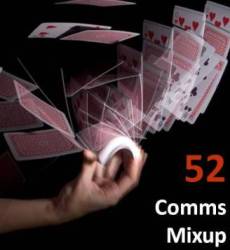Recently I was at a social media marketing conference. The final speaker of the day was the owner of a local business. He gave a great presentation. The passion for social media and his work was obvious. He talked about the culture of the company, how they value customer service and how they listen via Twitter and Facebook to respond to customer issues. He told stories about how they do fun things for customers and share interesting content about their industry. I was nodding my head and tweeting positive the whole time. And then he pulled up a slide with his Klout score.
I don’t remember the statement that followed verbatim. But it was something to the effect of: “We’ve embraced social media and become so active on Twitter that we even have a really high Klout score now, which is pretty cool and a great way to show how much progress we’ve made.”
What happened next is not Joe Fernandez’ or Klout’s fault. But it is what usually happens at conferences. People tweeted the speaker’s comment about Klout. Several attendees took down notes on Klout. Everyone kept silent, kept nodding. And the speaker, of course, went on with his presentation thinking he had just shared a great tip about a really cool tool that measures online influence. A tip he will probably include in his next presentation on social media marketing.
This speaker was not lazy. He was passionate and eager to share his experiences. He was trying to educate peers who did not have as much experience with social media as he did. And his presentation was compelling. But he fell victim to something most of us have fallen victim to once or twice before — the desire to succeed and be recognized for it, which is how he saw his high Klout score and the way he positioned it to the audience.
————————————————————————————————————————————————-
The other day one of my colleagues forwarded me an e-mail from a client. She had recently shared some of our blogger outreach work with her marketing peers. The outreach was to a niche blogger audience that was researched and targeted based on the client’s consumer demographics.
The research our client shared with marketing included two metrics we almost always consider in our overall influencer outreach evaluation - Technorati rank and authority. When we do the research, these are two of several factors we consider. But they are two quantitative factors and people are generally drawn to numbers.
So one person on the marketing team e-mailed our client back and mentioned that the post was interesting but wondered how much of an effect it could have had since the rank number was so high and the authority number was so low.
Luckily, our client shared that feedback with us and together we were able to craft a response about the magic middle, targeted outreach and why it doesn’t make as much sense for this client to go after The Huffington Post or Mashable all the time. But it was an interesting example of how people view metrics.
I know the woman in marketing and she is not lazy or completely new to social media. In fact, she always seems eager to learn and hear different perspectives. But it is obvious she’s been taught that with quantitative metrics, bigger means better. And from what I hear and read on a daily basis, she’s in the majority.
————————————————————————————————————————————————-
He’s not lazy. She’s not dumb. He’s passionate. She’s trying to understand. They’re both misinformed.
I don’t want to sound all holier than thou. I hate when people sound all holier than thou. But I do think we as communicators have an obligation to educate where we can. So the next time you hear someone tout Klout as a stand-alone influence metric or take Technorati to task because the numbers aren’t low or high enough…say something. Please.
It’s the only way we’re going to change how people think and help them understand that influence is much more complicated than any one or two numbers can explain. We consider Technorati rank and authority in our influencer research at Fleishman-Hillard. We’re discussing whether we need to add Klout to the mix.
But even if I decide to evaluate all three of those numbers the next time I research influencers, they’ll never be the only criteria I use to evaluate. And that’s because someone taught me that influence was about more than just numbers when I didn’t know any better.










[...] This post was mentioned on Twitter by Lauren Fernandez and JGoldsborough, FHB2B. FHB2B said: RT @JGoldsborough: Had to keep influence posts going . "The problem with influence scoring platforms" http://bit.ly/ftyz0Z #pr20chat # … [...]
. "The problem with influence scoring platforms" http://bit.ly/ftyz0Z #pr20chat # … [...]
[...] The problem with influence scoring platforms, by Justin [...]